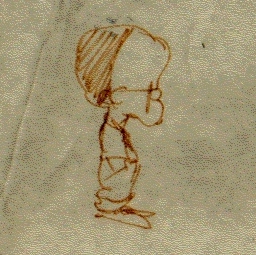- Blog/
The Huntington Beach History of Surfing and Japanese-American Internment
The recent comparisons of the family detainment and separations at the border with the Japanese-American internment during World War II, reminded me of a nearly decade-long complaint I’ve had with the city-comissioned hour-long centennial video of Huntington Beach, which for some reason included a short segment on the internment, right around the 25 minute mark.
Despite the wording of this notice displayed briefly in the segment, the narrator of this pseudo-documentary only described the detainees as “Japanese residents” and “immigrants”, and that the loyalty of said immigrants was a question that could not be answered. Not that entire families were imprisoned in desert camps behind barbed wire, most of them American citizens.
After my last complaint sent directly to City Hall, they said I was the only one who complained, but because of my complaint, they would stop airing the film on the local public channel. But it’s still on the city web site, so the complaint stands.
It just goes to show, there are people who still justify the internment, go out of their way to make videos justifying the internment, and those people are in government. It also goes to show there are people willing to help out in the production of those videos for a paycheck (I complained to the narrator of the film, and he said he totally agreed with me but he wasn’t the writer).
I was blogging my complaints back then, too, so here a couple on this issue from nine and eight years ago. Sucks To Be Them
Since I only have six working TV channels, one of which is the Huntington Beach city channel (HBTV), I’ve been catching snippets of 100 Years of Huntington Beach, basically a pleasant trip down memory lane including reminiscences of the city’s first beach concession, the introduction of surfing, yada yada. But I was appalled by the segment mentioning the internment of local Japanese-Americans (including citizens and whole families) during World War II. It came off as: the General had a tough decision to make, and he made it. Followed by a resident remembering a nice boy she wanted to date before he got sent off to the camp. Oh, well. Sucks to be them.
So I sent a semi-snippy suggestion to the city that they edit the film to remove that segment, if they couldn’t do the topic justice, and received this prompt, polite and not altogether satisfactory reply:
Thank you for your thoughtful comments regarding the history video. I know we tried to include it as part of the history of Huntington Beach. I will share your concerns with others in leadership in the community. The program is featured on our government channel, website and was shown on KOCE. We have also distributed hundreds of copies to individuals, middle schools and high schools. Yours is the first “negative” comment we have received and I can assure you people of all different backgrounds have viewed the video. Thanks again for your input.
No-one-else-complained-about-it is the type of reply I used to get from apartment landlords, and it’s pretty weak as an academic argument. We-already-distributed-it-to-a-bunch-of-students is just upsetting. I don’t remember getting any of this subject when I was in school — I hope there isn’t a whole generation of kids who are learning that sending American citizens to live behind barbed wire because of their race was a “difficult choice”.
And aside from portraying it as a debatable decision (I thought we were beyond that, like the debatability of separate-but-equal and anti-miscegenation laws), the segment was light on facts, not mentioning that the governer and President supported it, that it only took place in California and not even Hawaii where Pearl Harbor happened, and that many had their land usurped by unscrupulous neighbors.
Finally, I can’t believe all the “different backgrounds” included anyone who’s family was affected by this, or, say, Arab/Muslim/Persian Americans who might consider this type of thing could happen to them. (If there’s ever a war with China, I guess I better get packing). The HB centennial program includes a couple of talks on the internment, one from the last baby born inside the camp, so surely some people in the city government know better.
Whoever’s in charge of that film could take a cue from Ken Burns, who adjusted his documentary The War after complaints that he failed to depict Latino-Americans. He said afterward that the film was just as good after the change, although in some odd logic he said that validated his original methods — c’mon, you’re a media guy, just admit you’re a product of culture just like everyone else. I grew up with 70’s television, and the only minorities I remember from then is Speedy Gonzales, Pat Morita speaking fake Chinese in Happy Days, various African-Americans on the wrong side of the law in cop movies, and Bill Cosby. And in this supposedly post-racial time, the situation isn’t a lot better — TV land is by default white.
The War also has extensive treatment of the internment and the Japanese-Americans who volunteered anyway to fight in Europe and suffered terrible losses there. If Ken Burns isn’t your cup of tea, you can listen to George Takei talk about it on this web site, or just google “Japanese internment” — there’s plenty of information. Fred Korematsu Day
A couple of weeks ago, Gov. Schwarzenegger designated September 23 as Fred Korematsu Day, recognizing his civil rights leadership in resisting the Japanese-American internment of World War II.
Meanwhile, here at Huntington Beach public library , I picked up a copy of the 100-year Huntington Beach documentary published by the local historical society, which cheerfully notes how the chili crop production dipped during the war because the Japanese-American farmers were interned, but otherwise life went on as normal. And the book profiled a local Japanese “immigrant” who was interned (failing to elaborate that citizens were also interned), quoting him as saying “it had to be” (I’d like a second opinion on that translation), noting his “associates” (his poker buddies, or everyone of Japanese descent on the west coast?) were well-treated by their neighbors (except perhaps the Fountain Valley residents who didn’t want a Japanese-American soldier buried near his family’s home after he’d been drafted from camp to serve and be killed in Europe) and some were even offered the option to move inland (the interment sounds like a time-share presentation). Nothing about how that whole internment thing was a really bad idea (there were some who did object — the Orange County Register, Ansel Adams, and, oh yeah, the 120,000 sent to live behind barbed wire).
I had earlier complained to City Hall about the documentary they were broadcasting on local cable, but it turns out that was just a faithful rendition of this book. I just want to hear a “My bad, we didn’t know what we were talking about” but so far I’ve only heard “There’s nothing wrong with it”, “A diverse group of community leaders approved it” (have you seen the candidate roster this election? It’s blindingly white), and, horrifyingly, “It’s been sent to local schools”. Nice to know that when the next generation takes over, if there’s a war with China, I’m headed off to “camp” even though I’m an American-born citizen. I’m also descended from Muslims on my father’s side, so I’m doubly screwed (I assume those who are determined to think Pres. Obama is a Muslim would think I am, too). But gosh, I hear everyone was treated really well in those camps, so let me pack my bags!

